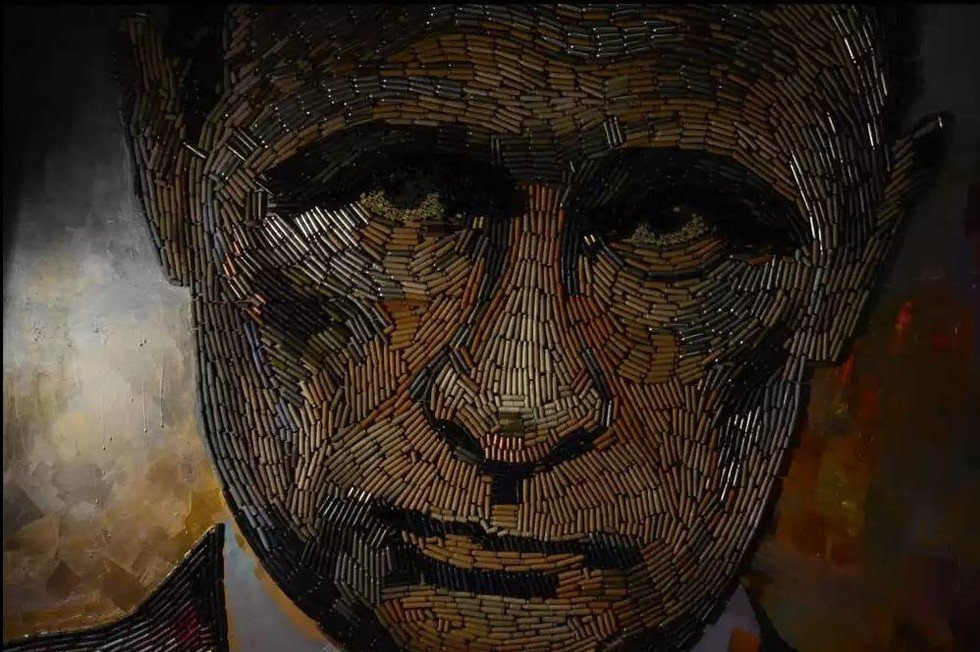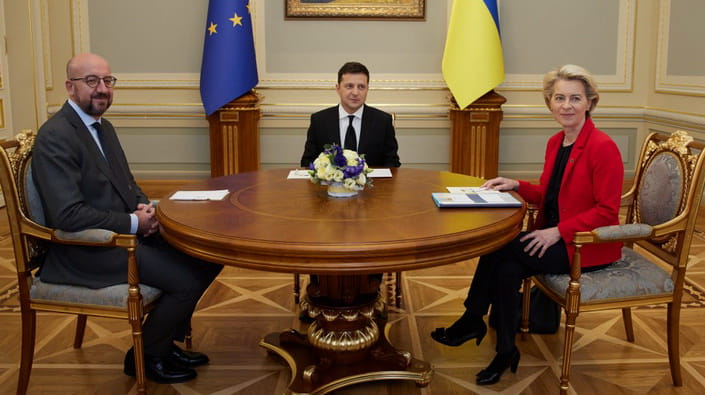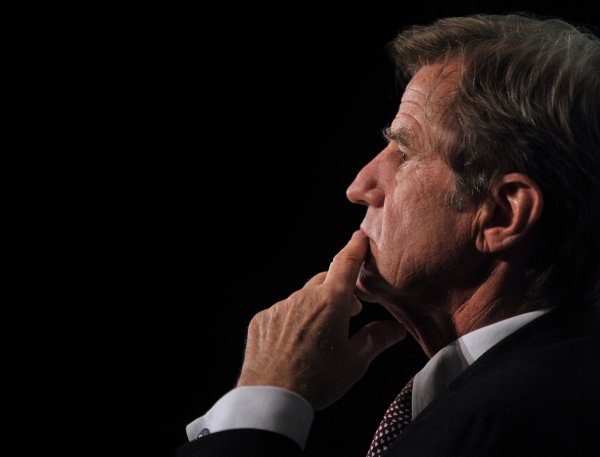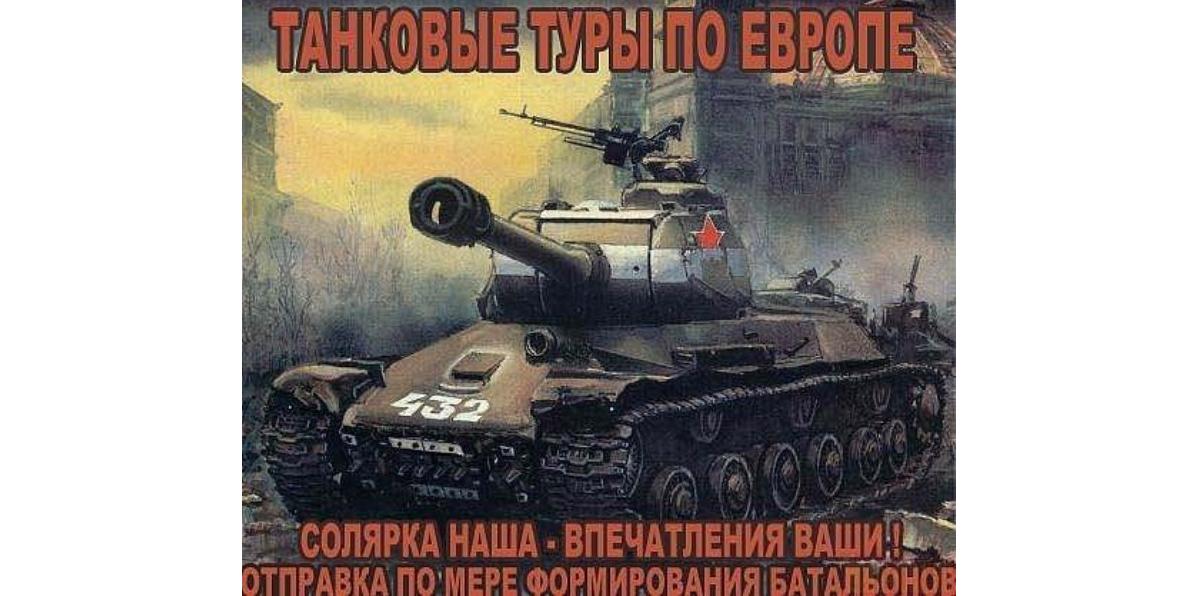“There will be no veterans of World War III.”
Walter Mondale, former US Vice-President
Events in 2018 have confirmed the fears and predictions of both pragmatists and realists: Europe continues to bury its head in its own affairs, the Minsk process has retreated far to the background and Russian pressure (in particular, military) is increasing on the borders of Europe.
The Kremlin’s actions and operations have reached a particularly serious level, indicating Moscow’s systematic preparations for a possible war where Ukraine may not be the only target. So far, most of the pressure has been aimed at Ukraine, where two national election campaigns are scheduled in 2019. Russia will try to resolve its strategic mission with “as little blood as possible” by bringing to power “negotiable” politicians or pro-Russian agents. However, if this fails, Ukraine should be ready for more radical scenarios.
The Ghosts of War
“In war, there is no second prize for the runner-up.”
Omar Bradley, American General
A year ago, I wrote that the threat of a war (which could start as full-scale military aggression against Ukraine, but will not stop there and will probably go much further) is becoming increasingly tangible. At that time, many saw this as a panic attack. However, the severe reality by the end of 2018 has shown that the threat is real, and Russia is mobilizing on a grand scale. A recent interview with a member of Ukraine’s military intelligence on the concentration of Russian forces on Ukraine’s borders demonstrates the extent of Russian deployment.
What do we see? Increase in the quantity and readiness of Russian military divisions stationed within 15 to 50 km from Ukraine’s border, their operational readiness, further militarization of Crimea, and demonstrative military exercises that call to mind offensive operations. To ignore these developments is to hide your head in the sand. I should also add the military potential built up by Russia in the last five years in Donbas: two army corps with 32,000 men, a constant inflow of new weapons through the so-called “humanitarian convoys,” and regular financial assistance to the so-called “people’s republics” [in occupied Donbas].
The Azov Sea conflict (which is not over yet) was a warning shot.
- Russian aggression in the Azov Sea has been ongoing since May 2018
- Russian military leadership ordered escalation in Black Sea, Ukrainian army intercepts show
- Russian attack on Ukrainian ships near Kerch Strait – full chronology
- Russian fighter jet blasted Ukrainian ships with unguided missiles in Azov Sea, SBU claims
And there is something else – Russian forces are increasingly trained to shoot to kill. As the Battle of Ilovaisk showed, firing at unarmed retreating Ukrainian soldiers seems to be something deeply rooted in their blood, perhaps initiated by the practice of mass shootings of Ukrainian political prisoners by the notorious NKVD. So, perhaps they have now decided to test their skills.
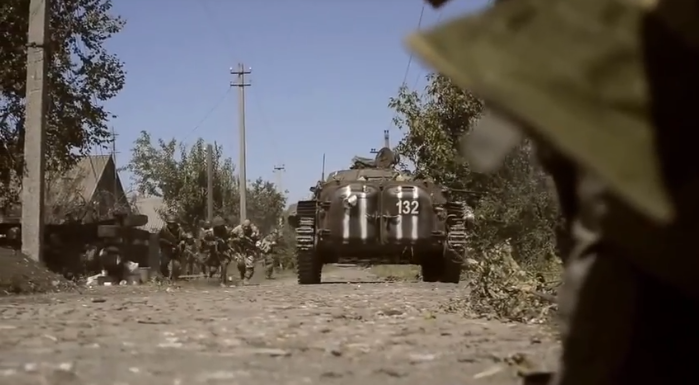
I agree with the experts who argue that, given the current state of Ukrainian and Russian naval forces, Ukraine must acknowledge the fact that Russia can block the Azov Sea and Ukrainian ports at any time. So, Ukraine must look for alternative solutions that the population may not like from the political and symbolic point of view.
The Azov Sea conflict represents a greater challenge for Russia.
The Kremlin was interested in the West’s reaction to an outright – absolutely conventional and not hybrid – act of aggression, which clearly falls under a number of international treaties. By attacking Ukrainian ships and blocking Ukrainian ports, the Russian Federation violated at least two paragraphs of UN General Assembly Resolution 3314 (XXIX) dated December 14, 1974.
Russia is expanding its military forces at an accelerated pace. There are points under constant pressure, the purpose of which is to confuse the opponents and force them to react to possible aggression. These can be categorized as classic examples of reflexive control. There is no doubt that Moscow will try very hard to create as much chaos as possible during the Ukrainian elections, by threatening Ukraine with large-scale intervention, maneuvering its own troops near the border, and possibly engaging in bloody provocations.There are points under constant pressure, the purpose of which is to confuse the opponents and force them to react to possible aggression. These can be categorized as classic examples of reflexive control.
Not only are some presidential candidates and political parties outright followers of Russia, but they are also completely in line with the goals of its foreign policy. However, if the campaigns of these political parties fail, what might be Moscow’s reaction? It is quite obvious the Kremlin will not let go of Ukraine.
But, is it prepared to implement something akin to the Gleiwitz incident against Ukraine? Will an unknown Major Ivanov of the Russian Special Operation Forces pronounce the phrase “Grandmother died”? Is war an inevitable scenario?
Probably not. Putin understands very well what a real, large-scale war would mean. If he sees the opportunity to provoke and escalate the situation, he will do so, but it is unlikely that he will accelerate this process. Putin’s current strategy is to demonstrate to the world that he is ready for any development and, if necessary, he is also ready to hold on to the bitter end. However, his insatiable readiness for a large-scale war does not mean that he will refrain from escalating tensions and destabilizing the situation.
Events in 2018 (and even partially in 2017) indicate that the “Russian World” is getting ready to launch an attack on Belarus. As in the case of Ukraine, it started with economic pressure and coercion to “strengthen friendship”, and then the creation of different working groups to “discuss various aspects of integration and other contentious issues”. So far, Lukashenko is trying to evade Putin’s embrace (he has actively involved Chinese investors in local business affairs, thus creating an alternative investment channel). But, Russia’s strategy is clear – powerful media outreach groups are preparing the ground for a possible takeover scenario.
- Moscow pursuing ‘forced integration’ of Belarus into Russia now, Sivitsky says
- Moscow officials currently preparing for Anschluss of Belarus, Larionov says
- Belarus already under Russian troll attack designed to give Moscow a base for further aggression
- When Moscow talks of ‘deep integration’ of Belarus, it means annexation, Lukashenka says
Experts associate these events first of all with Putin’s desire to find a way out of the 2024 problem [Putin faces term limits in 2024-Ed]. However, I believe things will accelerate much earlier – in 2019 and 2020. There are several factors that may push Putin to act more quickly and decisively. It seems that Lukashenko is not quite sure of his own security organs (the KGB, the army), so he periodically rotates the staff. It is possible that such measures disturb, or have already disturbed, some of Russia’s plans, so Moscow has to find new schemes.It seems that Lukashenko is not quite sure of his own security organs (the KGB, the army), so he periodically rotates the staff. It is possible that such measures disturb, or have already disturbed, some of Russia’s plans, so Moscow has to find new schemes.
Will Belarus be able to resist Russia’s growing pressure? In my opinion, it is very doubtful. After 2014, Russia started playing a zero-sum game with its old protagonists, rejecting the principle of cooperation and interaction. For a long time, for all post-Soviet states, Belarus was a showcase of what an “ally” of Russia should look like. 2014 brought about radical changes – a showcase is no longer needed, and even more so seeing that Lukashenko is too stubborn and provocative. The high stakes in this game call for full control.
Ukraine, Belarus, and Kazakhstan – this is the minimal program. The larger program includes control of the Baltic States, the creation of zones of instability in Poland, Romania, Bulgaria and Greece, and the implementation of similar zones in Germany, France, and central and southern EU countries. Preparations are in full swing. Not only does it involve fuelling protests across Europe, but it also means creating and launching paramilitary forces. Russia is engaged in the organization of underground recruitment and pro-Russian military centers throughout Europe (for example, the International Center for Combat and Special Training “Wolf”, whose branches operate in many European countries). This pro-Russian network is both extensive and very serious.
Visionary Crisis
“Define your goals and develop the strength to achieve them.”
Mahatma Gandhi
Is the West really ready for a war, an event that might unexpectedly disturb the current European reality? No, even despite Russia’s ongoing destabilization tactics. The dividing line between the countries that are fully aware of the Russian threat (Lithuania, Estonia, Latvia, Poland, Britain, the Scandinavian countries, and partly Slovakia and the Czech Republic) and the other European states has become even deeper. Reactions and responses are limited to verbose statements, half-hearted resolutions and various conferences.
In order to determine a country’s readiness to respond to this threat, a few simple questions are in order.Is the West really ready for a war, an event that might unexpectedly disturb the current European reality? No, even despite Russia’s ongoing destabilization tactics.
- How many countries reviewed their counter-intelligence and media laws after 2014?
- How many would be able to implement a new military and political process through concrete solutions?
- Whatever happened to the idea of creating a European army? How many countries have increased military spending in order to approach NATO’s minimal requirements?
The World Bank has published a military spending graph comparing current figures with 1960 data. At that time, military spending of countries opposing the USSR was about twice as high (for example, France spent 6.5% on defense and Germany – 4%). Without idealizing Trump, I cannot help but point to a reasonable question that he posed to Europe: “Why should America defend Europeans who won’t defend themselves?”
Read also: Separatists in Donbas have more tanks than Germany, France, and Czech Republic combined
The Kremlin’s activity is a direct consequence of Europe’s excessively “careful” security policy. Moscow is more than willing to take part in the organization of protests all over Europe. Thus, the resilience of Europe’s political stability is being tested in each EU country.
The US is also in a difficult situation. The recent resignation of Defense Secretary James Mattis is a symptom of a serious problem that the United States has not been able to resolve two years after the presidential election, namely Trump’s estrangement from a large part of the American political establishment. Over the past two years, the Congress has done a great deal to limit the President in making strategic decisions in domestic and foreign policy. However, there are limits to such control, and Trump is definitely aware of them.
Many political alliances have weakened, trust in partnerships has declined, and countries that have formed strong alliances for almost half a century and relied on the support of their allies are now facing problems almost on their own. This has contributed to growing political populism and social protests. France and Germany are so wrapped up in their own internal problems that they pay little attention to the reality in surrounding countries.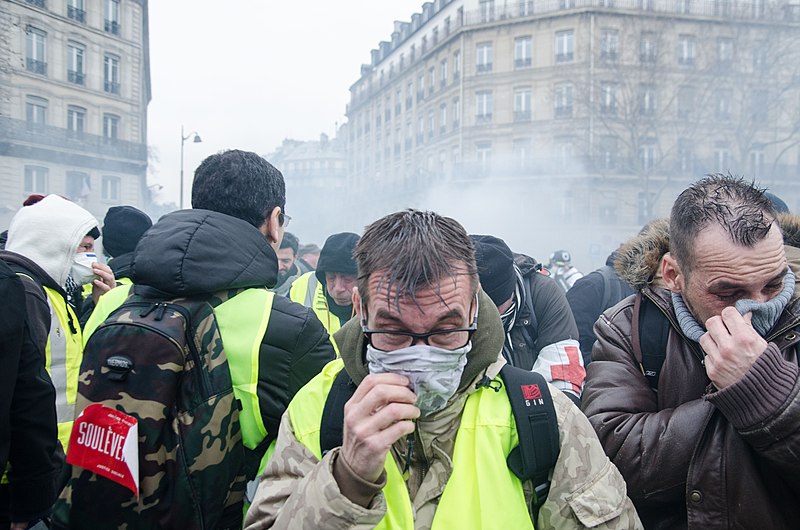
The Yellow Vests protests in France have been described as having populist traits. Photo: 5 January 2019, Paris, kriss_toff [CC BY 2.0 (https://creativecommons.org/licenses/by/2.0)]
2018 showed that there is a systemic visionary crisis in Europe. Rapid global changes and the harsh challenges of the current world order require new global goals and new pragmatic means of achieving them. The feeling that Europe is on the verge of disintegration is growing, and Moscow is actively using it to its own advantage. Europe and the West lack something essential that prevailed during the Cold War period – a sense of unity, unity against a common threat.Europe and the West lack something essential that prevailed during the Cold War period – a sense of unity, unity against a common threat.
The greatest danger to Europe is not Russia’s actions, but the strategically incorrect answers to these actions. The sanctions policy has reached its limit (which, incidentally, does not mean that sanctions should be abolished), but the EU is unlikely to introduce new measures. The Russian economy has adapted to the sanction regime; the actual militarization of Russia’s economy makes this regime ineffective. The West has saved its trump cards for so long (e.g. Russia’s exclusion from the SWIFT system) that even if they are used now, they will not produce any real effect: Russia has begun preparing for new challenges since 2015 and will probably be ready to respond when and if the time comes. Russia has disconnected itself from the rest of the world, and this should also be considered a sign of possible preparations for war.
I will repeat it again: do not underestimate Russia’s armed forces. This is an army that has been fighting constantly, an army based on a large rearmament program. Ukraine’s “ally” is Russian corruption, but placing all the stakes on this option is just as senseless as hoping to counter Russian influence through sanctions.
Russia’s militarization, combined with subversion and sabotage, threatens to further destabilize and heighten tension in different European countries.
A major challenge to the geopolitical security system is China. The PRC has, in fact, completed its internal political restructuring process. The country’s technological breakthrough (the first-ever landing of a robotic spacecraft – Chang’e-4 probe – on the far side of the Moon) is highly impressive. It will definitely have a noticeable effect on China’s defense system, as evidenced by Xi Jinping’s statement that the Chinese army should be ready for hostilities in the near future, because “the world is undergoing the most profound and unprecedented changes”. Given the change in the Chinese president’s rhetoric on Taiwan, which analysts have already called “opening the door to war”, the world may well face new military challenges in the next few years (and possibly even in the coming year).
At a time of such global instability, Ukraine faces two nationwide election campaigns, which will form the political class that will govern the country in the next five years. Ukraine is at war, the consequences of which are intensified by the gradual destruction of deterrence and check-and-balance systems on the international scale.
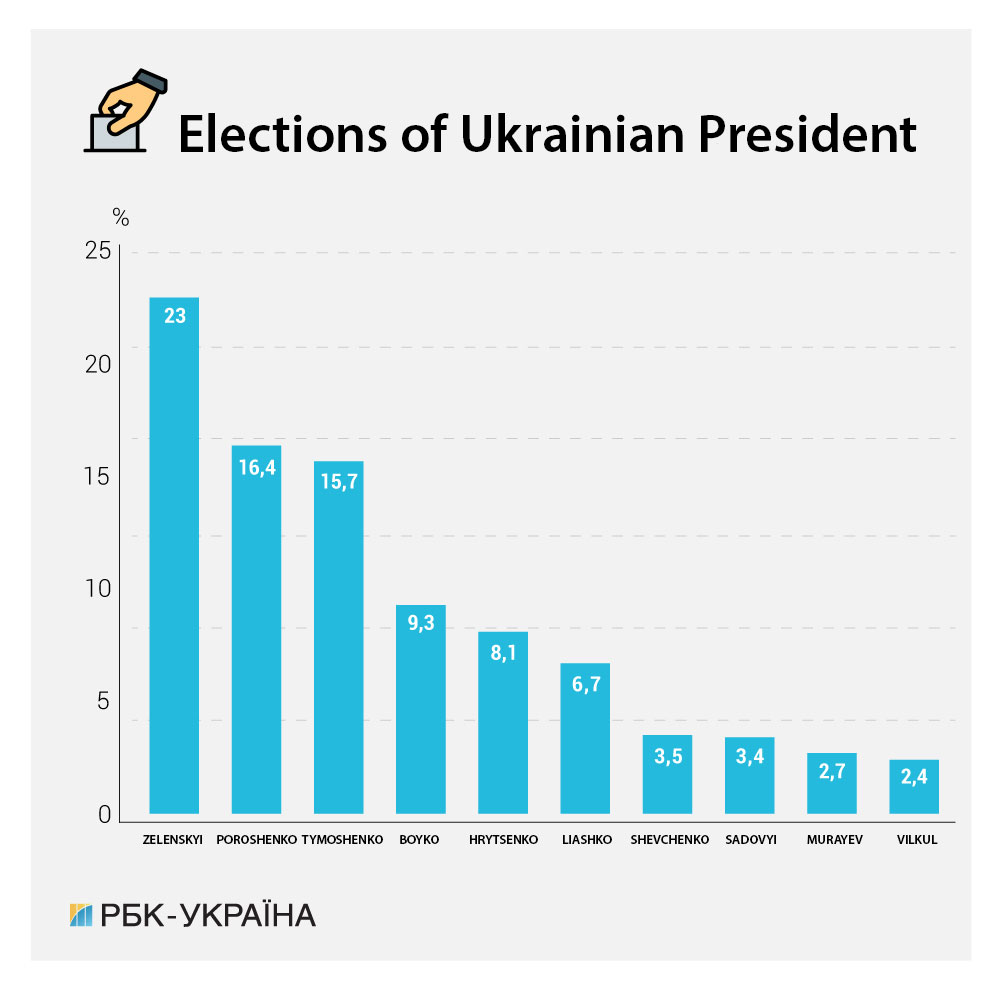
The large number of candidates running for president is not as troubling as the absence of clear, comprehensive programs, strategic visions for the future, adequate understanding of the international situation, and awareness of the extent and nature of the threat posed by Russia. Can we actually view the following ideas as sensible:
“All we have to do is sit down and ask our neighbour a simple question: Why did you invade our country? Please note your points. Then, we’ll look at these points, study them. But, honestly, peace must be on our terms. So, here are our demands!”
Such statements [expressed by leading presidential candidate, comedian-turned-politician Vladislav Zelenskyy] are way beyond infantilism. They constitute an incredible act of profanation, which, surprisingly, is a response that is widely heard from Ukrainians today.
People in the different presidential teams, who are actually capable of thinking ahead and analyzing a situation, can be counted on the fingers of one hand. The danger is that, among potential presidential candidates and future parliamentary candidates for parliament, there are obvious or latent agents of Russian influence, which the Kremlin is using to create the right conditions required for victory.
Read also: Ukraine prepares for Russia’s interference in the country’s 2019 elections
Moscow’s intervention in Ukraine’s electoral campaigns threatens to be unprecedented. There is too much at stake. It is no coincidence that some of Ukraine’s Western partners will not risk forming bilateral cooperation plans until the end of the elections.
2019 may prove as difficult as 2004 (although probably not the same as 2014). Ukraine’s success depends on whether the elites will be able to build a quality image of the country’s future after the elections, to rise above a parochial assessment of reality, and to look beyond the horizon.
The main task faced by the new president, parliament and government will be the consolidation of professionals to fully restore the “backbone” of the state, which is necessary for the development and implementation of sound projects, taking into account all the existing threats and challenges. It is namely such a strategy that can strengthen people’s trust in the government and mobilize what we need most – unity and cohesion. This is absolutely necessary against the backdrop of an increasingly aggressive Russia and a more and more confused Europe.
And more. There is an urgent need of self-confidence in the country. I have the right to say this for the following reasons: in all the years of living and working in an independent Ukraine, with all the presidents, with different governments, observing the many mistakes committed by all of them (and myself included), self-confidence is what we need most. This is what we especially need in 2019 in order to make the right choice for Ukraine and its future.





